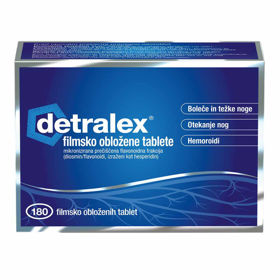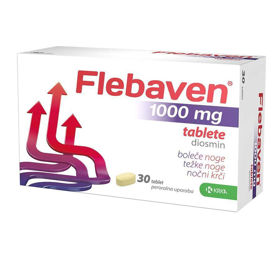Customer question:
When do you decide to have varicose vein surgery? What are the comments on the forums?
Pharmacist's response:
If treatment with endothermal ablation or sclerotherapy does not bear fruit, you will usually be offered a surgical procedure called ligation and treatment of the affected or varicose veins. Although varicose veins are generally not dangerous, you should visit your doctor and make an appointment for a preliminary examination and further specialist treatment. Before making a wise decision for surgery, check if you can help with treatment (Detralex, Flebaven)
See your doctor as soon as possible if you experience the following:
- bleeding
- discoloration of the skin in the area of the veins of the leg
- pain, red or warm skin in the vein area
- swelling.
How does varicose vein surgery work?
During this procedure or surgery, also called ligation or removal of veins, the surgeon ties your damaged vein (ligation) to prevent blood collection.
In varicose vein surgery, this procedure involves completely removing the defective varicose vein.
The operation is usually performed under general anesthesia, meaning you will fall asleep. You can generally go home the same day, but sometimes an overnight stay in the hospital is necessary, especially if you have surgery on both legs.
In more modern laser interventions, the vein is not pulled out, but the vein remains in the leg, and it is closed with the help of local laser heating of the vein and inactivation of the flow through it.
What are the other treatment options before we decide on surgery?
If only varicose vein medications can reduce their appearance and ease discomfort:
- Leg elevation: To increase blood flow and reduce pressure in the veins, you should raise your leg above the waist several times during the day.
- Compression stockings: Support stockings compress the veins and reduce discomfort. Compression prevents stretching out and helps blood flow.
- Injection therapy (sclerotherapy): During sclerotherapy, a healthcare professional injects a solution into your vein. The solution causes the vessel walls to stick together. Eventually, your vein turns into a scar and disappears.
- Laser therapy: In a minimally invasive procedure called endovenous thermal ablation, healthcare providers use a catheter (a long, thin tube) and a laser to close the damaged vein.
- Drug detralex: Drug Detralex also represents an option for treating or alleviating the formation of varicose veins, as it is used in adults and is intended to treat the symptoms of chronic venous disease.
Comments on laser varicose vein surgery
Especially on the forums, you can find positive and also negative comments regarding laser varicose vein surgery.
The main instructions and findings are mainly:
- walking and movement, which is necessary for complete and as soon as possible regeneration of the operated area
- struggle with pain
Commentaries:
Comment from the forum: My laser procedure was performed in May, and now I only have small, barely visible scars after the operation; even the scar in the groin quickly disappeared.
Comment from the forum: After the procedure, everything hurts a lot, and I have bruises, so I take painkillers. I walk up to 3 kilometers a day and gradually increase the distance. When I walk, the compression socks come down to my ankles, so I have to adjust them again and again. When I pull them back, they're so tight yet maintain compression...
Comment from the forum: The laser procedure was completed about eight days ago, and I have recovered. I still have three tiny cuts and some bruises on my leg, but for once, I don't feel any discomfort. There were some itching 3 or 4 days after the procedure, but that went away.
Interesting reading: Pains in legs while sleeping
Interesting reading: Leg pain at rest











